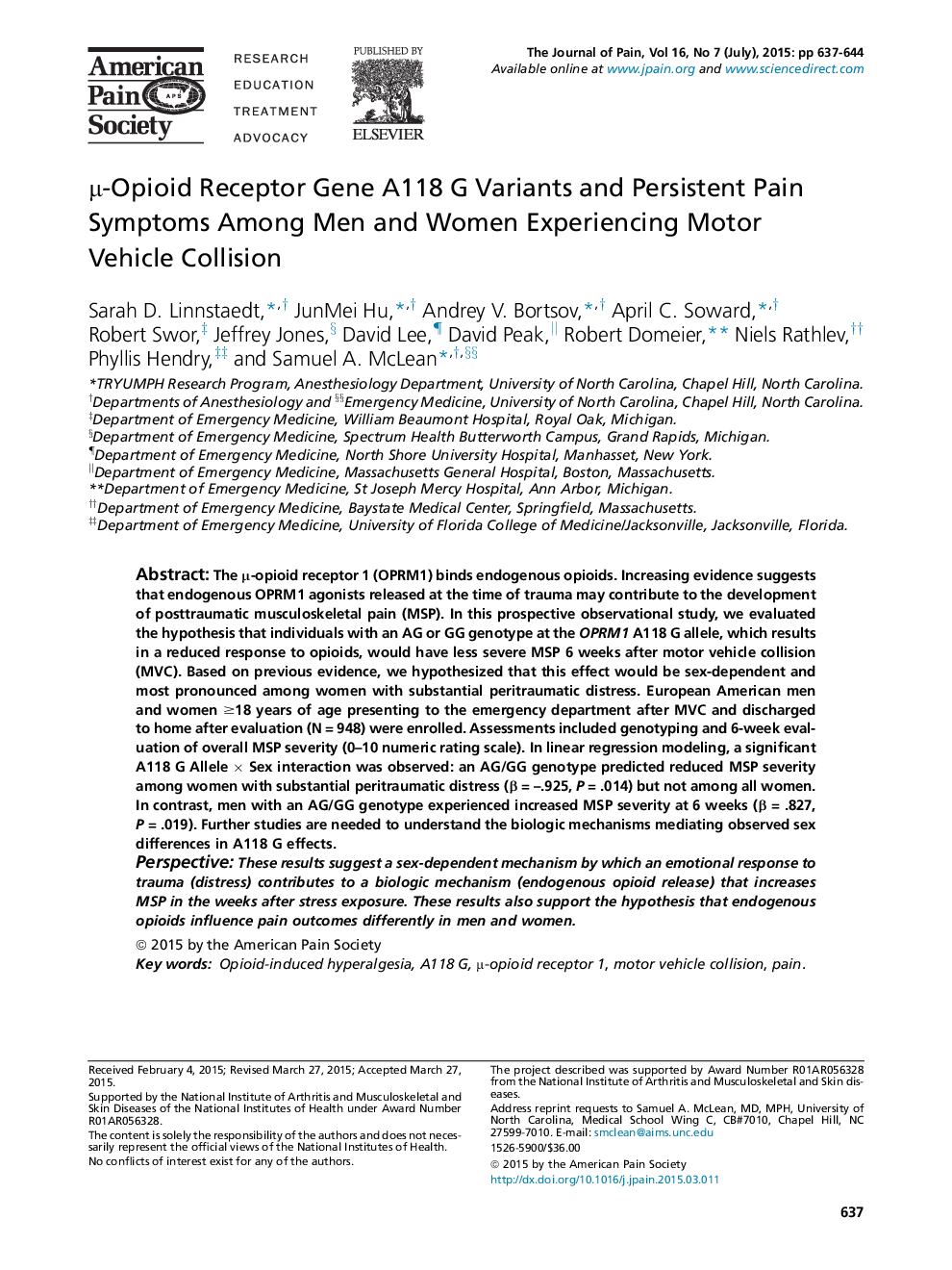| کد مقاله | کد نشریه | سال انتشار | مقاله انگلیسی | نسخه تمام متن |
|---|---|---|---|---|
| 2731985 | 1566731 | 2015 | 8 صفحه PDF | دانلود رایگان |
• We examined the effect of OPRM1 A118 G on persistent pain following motor vehicle collision (MVC) stress.
• Women with a G allele and distress at the time of MVC had reduced pain at 6 weeks.
• Men with a G allele had increased pain 6 weeks following MVC.
• Results show a sex-dependent effect of A118 G on pain development following stress.
• Effect of OPRM1 allele on pain after stress suggests endogenous opioid-induced hyperalgesia mechanism.
The μ-opioid receptor 1 (OPRM1) binds endogenous opioids. Increasing evidence suggests that endogenous OPRM1 agonists released at the time of trauma may contribute to the development of posttraumatic musculoskeletal pain (MSP). In this prospective observational study, we evaluated the hypothesis that individuals with an AG or GG genotype at the OPRM1 A118 G allele, which results in a reduced response to opioids, would have less severe MSP 6 weeks after motor vehicle collision (MVC). Based on previous evidence, we hypothesized that this effect would be sex-dependent and most pronounced among women with substantial peritraumatic distress. European American men and women ≥18 years of age presenting to the emergency department after MVC and discharged to home after evaluation (N = 948) were enrolled. Assessments included genotyping and 6-week evaluation of overall MSP severity (0–10 numeric rating scale). In linear regression modeling, a significant A118 G Allele × Sex interaction was observed: an AG/GG genotype predicted reduced MSP severity among women with substantial peritraumatic distress (β = –.925, P = .014) but not among all women. In contrast, men with an AG/GG genotype experienced increased MSP severity at 6 weeks (β = .827, P = .019). Further studies are needed to understand the biologic mechanisms mediating observed sex differences in A118 G effects.PerspectiveThese results suggest a sex-dependent mechanism by which an emotional response to trauma (distress) contributes to a biologic mechanism (endogenous opioid release) that increases MSP in the weeks after stress exposure. These results also support the hypothesis that endogenous opioids influence pain outcomes differently in men and women.
Journal: The Journal of Pain - Volume 16, Issue 7, July 2015, Pages 637–644
